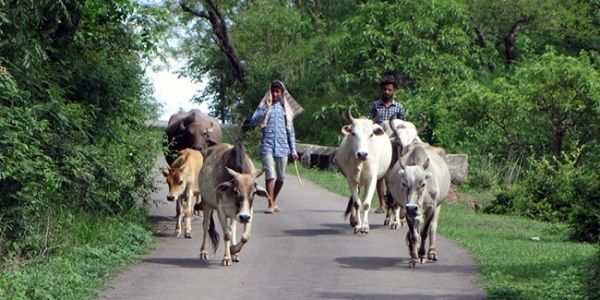At the southern tip of the Himalayas, farmers in the Kangra region of India’s Himachal Pradesh graze cattle among rolling hills and forests. The forests, under management by the state or farmer cooperatives, are thriving. But a new University of Illinois study shows, unlike state-managed forests, farmer cooperatives directly benefit both forest health and farmers.
The finding itself may not be new – previous research and social-ecological theory suggest that land ownership leads to enhanced stewardship and improved environmental outcomes – but the study confirmed the conclusion in a new way, using machine learning.
“This is the first application of machine learning algorithms in natural resources policy and governance, evaluating how policies actually work on the ground,” says Pushpendra Rana, postdoctoral research associate in the Department of Natural Resources and Environmental Sciences at U of I and lead author on the study published in Environmental Research Letters.
Read more at College of Agricultural, Consumer and Environmental Sciences
Image Credit: Pushpendra Ran


